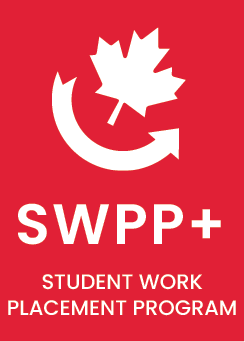Frequently asked questions
If there is one thing for certain – people will always need food and it’s central to the health and wellbeing of society! There is an incredible variety of jobs and lifelong careers available in the food and beverage manufacturing industry.
Technology alone has opened up hundreds of different fields in the industry from chemical engineers, toxicologists, to enologists, and health and safety inspectors. Of course there are also the skilled trades, artisans, specialists in bakery, winemaking, brewing, dairy processing, meat production and so on. The industry has also prioritized workplace culture, production sustainability and CSR — all key to successful businesses.
There are so many career paths and levels of skill requirements on offer. SWPP+ is helping students narrow their career choices by providing real time experiences of industry jobs, and introducing employers to the next generation of leaders.
If there is one thing for certain – people will always need food and it’s central to the health and wellbeing of society! There is an incredible variety of jobs and lifelong careers available in the food and beverage manufacturing industry. Technology alone has opened up hundreds of different fields in the industry from chemical engineers, toxicologists, to enologists, and health and safety inspectors. Of course there are also the skilled trades, artisans, specialists in bakery, winemaking, brewing, dairy processing, meat production and so on. The industry has also prioritized workplace culture, production sustainability and CSR — all key to successful businesses.
There are so many career paths and levels of skill requirements on offer. SWPP+ is helping students narrow their career choices by providing real time experiences of industry jobs, and introducing employers to the next generation of leaders. We believe SWPP+ is essential to the industry in shifting perceptions and broadening the understanding of the career pathways available.
Work-integrated learning (WIL) is a model and process of curricular experiential education which formally and intentionally integrates a student’s academic studies within a workplace or practice setting.
WIL opportunities that are eligible for student work placement wage subsidies include, but are not limited to:
- mentorship programs
- co-op placements
- practicums
- applied research projects
- internships
WIL experiences include an engaged partnership of at least: an academic institution, a host/employer organization and a student. WIL can occur at the course or program level and includes the development of learning outcomes related to employability, personal agency, and life-long learning.
To learn more about the value of work-integrated learning visit CEWIL Canada
No. Apprenticeships in a skilled trade are not eligible for TOP.
Students must be on the employer’s payroll, contractors are not eligible for SWPP+.
Yes. Summer jobs are eligible for SWPP+ so long as the student is satisfying a WIL component of the student’s program or course of study.
No, educators, municipalities, territorial and provincial governments are not eligible for funding.
A wage subsidy provides financial reimbursement to employers who hire eligible job seekers.
- Women in STEM: refers to a woman registered and studying in science, technology, engineering, and mathematics (STEM).
- Indigenous People: refers to people who reported identifying with at least one Aboriginal group, that is, First Nations, Métis, or Inuit, and/or those who reported being a Treaty Indian or a Registered Indian as defined by the Indian Act of Canada, and/or those who reported they were members of an Indian band or First Nation.
- Persons with disabilities refers to an individual who has a difficulty or impairment due to a long-term condition or health problem and/or experiences a limitation in their daily activities.
- Newcomer: refers to immigrants who immigrated to Canada within the last five years.
- Visible Minorities: refers to persons, other than Aboriginal peoples, who are non-Caucasian in race or non-white in colour.
A minimum of 10/hours week for part-time to a minimum of 35 – 40/hours week for full-time up to a maximum of 16 weeks. The maximum funding that can be received per placement is $7,500 and is subject to availability.


